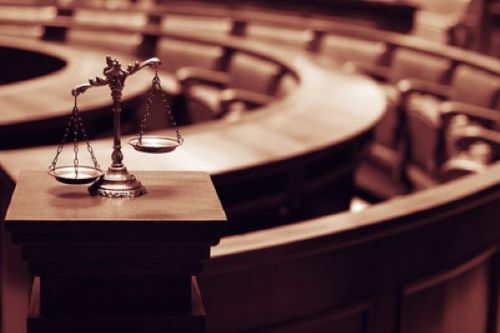Navigating the aftermath of a personal injury can be daunting. Especially when it involves legal complexities. This is where personal injury lawyers come into play. They specialize in a field of law that covers a wide range of scenarios.
But what kind of cases do personal injury lawyers handle?
The answer is not as straightforward as it might seem. Personal injury law encompasses various types of cases, each with its unique aspects.
From car accidents to medical malpractice, from slip and fall incidents to product liability claims, the spectrum is broad.
In this comprehensive guide, we delve into the types of cases personal injury lawyers handle. We aim to shed light on the scope of legal representation offered by injury attorneys.
Whether you’re seeking legal advice or simply wish to understand this field better, this article is for you.
Understanding Personal Injury Law
Personal injury law, also known as tort law, revolves around the concept of negligence. It’s about holding individuals or entities accountable for their actions that cause harm to others.
The harm can be physical, emotional, or financial. The goal of personal injury law is to restore the injured party, known as the plaintiff, to the state they were in before the injury. This is achieved through financial compensation, or damages, paid by the party at fault, known as the defendant.
Understanding personal injury law is crucial for anyone involved in an accident or injury. It helps you know your rights, the legal options available, and how to seek fair compensation. It’s also the first step in understanding what kind of cases personal injury lawyers handle.
The Role of Personal Injury Lawyers
Personal injury lawyers play a crucial role in providing legal representation to individuals who have been injured due to the negligence of others. They help their clients navigate the complex legal system, ensuring their rights are protected and they receive the compensation they deserve.
These attorneys handle a wide range of tasks, from gathering evidence and negotiating with insurance companies to representing clients in court. They work on a contingency fee basis, meaning they only get paid if they win the case and secure compensation for their client.
In essence, personal injury lawyers level the playing field against large insurance companies and corporations. They provide the necessary legal expertise, allowing injured individuals to focus on their recovery while the attorney handles the legal aspects of their case.
Motor Vehicle Accidents
Motor vehicle accidents are among the most common cases personal injury lawyers handle. These can involve cars, trucks, motorcycles, bicycles, and pedestrians.
In such cases, injury attorneys work to establish the other party’s negligence and liability. They gather evidence, consult with experts, and negotiate with insurance companies to secure fair compensation for their clients’ injuries and damages.
Medical Malpractice Cases
Medical malpractice cases arise when a healthcare provider’s negligence leads to patient harm. This could be due to misdiagnosis, incorrect treatment, surgical errors, or medication mistakes.
Injury attorneys specializing in medical malpractice work to prove the healthcare provider’s fault. They gather medical records, consult with medical experts, and seek compensation for the client’s physical, emotional, and financial damages.
Workplace Injuries and Workers’ Compensation
Workplace injuries can occur in any job setting, from construction sites to office spaces. These injuries may result from falls, equipment malfunctions, or exposure to harmful substances.
Personal injury lawyers play a crucial role in workers’ compensation cases. They help injured workers navigate the complex process of filing a claim, ensuring they receive the benefits they are entitled to. This can include compensation for medical expenses, lost wages, and disability benefits.
Slip and Fall Accidents: Premises Liability
Slip and fall accidents are common personal injury cases. They occur when a person slips, trips, or falls due to a hazardous condition on someone else’s property.
In these cases, personal injury lawyers work to prove premises liability. This means showing that the property owner or manager was negligent in maintaining safe conditions. If successful, the injured party may receive compensation for medical bills, lost wages, and pain and suffering.
Product Liability Claims
Product liability claims arise when a consumer is injured by a defective or dangerous product. These cases can involve anything from faulty appliances to harmful pharmaceuticals.
Injury attorneys in these cases aim to prove that the product was defective and that this defect caused the client’s injury. They may seek compensation from manufacturers, distributors, or retailers. The damages recovered can cover medical expenses, lost income, and other losses related to the injury.
Wrongful Death Claims
Wrongful death claims are a type of personal injury case where the victim has died as a result of someone else’s negligence or intentional harm. These cases can arise from various situations, such as car accidents, medical malpractice, or workplace accidents.
The surviving family members or the estate of the deceased can seek compensation for losses such as funeral expenses, loss of income, and emotional distress. A skilled personal injury lawyer can guide families through this complex legal process, ensuring they receive the compensation they deserve.
Other Personal Injury Cases
Personal injury law covers a wide range of cases beyond the ones previously mentioned. These can include instances of intentional harm, such as assault and battery, as well as injuries caused by animals or damage to a person’s reputation through defamation.
Assault and Battery
Assault and battery cases involve intentional harm caused by one person to another. This can range from threats of violence (assault) to actual physical harm (battery). Personal injury lawyers can help victims seek compensation for their physical and emotional injuries.
Animal Attacks and Dog Bites
Injuries caused by animals, particularly dog bites, can also fall under personal injury law. Owners can be held liable if their pet causes harm to another person. A personal injury lawyer can help victims navigate the legal process and seek compensation for their injuries.
Defamation: Libel and Slander
Defamation cases, involving libel (written defamation) and slander (spoken defamation), can also be handled by personal injury lawyers. These cases involve damage to a person’s reputation due to false statements. Legal representation is crucial in proving the falsity of the statements and the harm caused.
Navigating the Legal Process
The legal process in personal injury cases can be complex. It involves several stages, from filing a lawsuit to negotiating a settlement or going to trial. A personal injury lawyer guides clients through this process, ensuring their rights are protected.
They help clients understand the legal jargon, deadlines, and procedures. Their expertise can make the difference between a successful claim and a dismissed case.
Filing a Lawsuit and the Litigation Process
Filing a lawsuit is the first step in the litigation process. This involves drafting and submitting a complaint to the court, outlining the basis of the claim. The defendant is then served with the lawsuit and given a chance to respond.
The litigation process may involve discovery, where both sides gather evidence. It may also include motions to resolve issues before trial. If a settlement isn’t reached, the case proceeds to trial where a verdict is rendered.
Settlement Negotiations and Mediation
Most personal injury cases are resolved through settlement negotiations, not trials. Lawyers negotiate with the opposing party or their insurance company to reach a fair settlement. This process requires skillful negotiation and a thorough understanding of the case’s value.
In some cases, mediation may be used. This involves a neutral third party who helps facilitate discussion and negotiation. Mediation can be a cost-effective and less adversarial way to resolve a dispute.
The Importance of Evidence and Documentation
Evidence is crucial in personal injury cases. It helps establish the facts of the case, prove liability, and quantify damages. This can include medical records, accident reports, witness statements, and more.
Documentation is equally important. Keeping track of medical bills, repair costs, and other expenses helps calculate potential compensation. A personal injury lawyer can help gather and organize this evidence, ensuring it’s presented effectively to support the claim.
Choosing the Right Personal Injury Lawyer
Choosing the right personal injury lawyer is crucial for a successful claim. The right lawyer can make the difference between a fair settlement and inadequate compensation.
They should be able to navigate the complexities of the legal system, negotiate effectively, and advocate for your rights in court if necessary.
Experience and Specialization
Experience and specialization matter when choosing a personal injury lawyer. A lawyer with a track record in handling similar cases can provide valuable insights and strategies.
They should be familiar with the specific laws and regulations related to your type of injury claim.
Understanding Fees and Costs
Understanding how a lawyer charges for their services is important. Most personal injury lawyers work on a contingency fee basis, meaning they only get paid if they win your case.
However, it’s important to clarify any additional costs or expenses that may be charged separately.
Conclusion: The Value of Legal Representation
Legal representation in personal injury cases is invaluable. A skilled lawyer can help you navigate the complex legal landscape, ensuring your rights are protected and you receive the compensation you deserve.
Whether it’s negotiating with insurance companies, gathering evidence, or representing you in court, a personal injury lawyer plays a crucial role. Their expertise and guidance can make the difference between a successful claim and a disappointing outcome.






